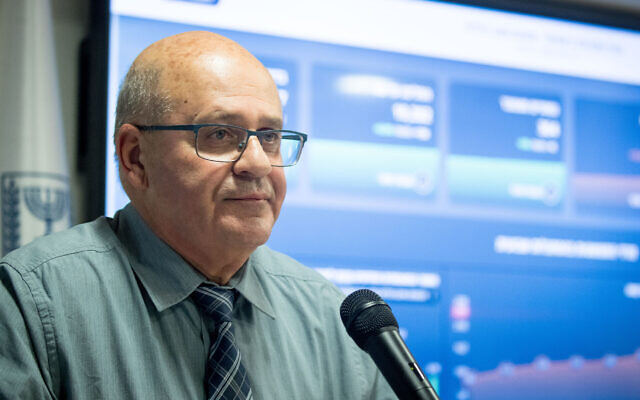Israel’s death toll from the coronavirus outbreak continued to climb Sunday, with three more deaths bringing the total fatalities to 909, according to Health Ministry figures.
Of the 20,151 active patients, 441 were in serious condition including 121 on ventilators. A further 194 people had moderate symptoms with the rest showing light or no symptoms of COVID-19, the disease caused by the virus. There were 892 people hospitalized, the ministry said.
Over the course of Saturday, 898 people were diagnosed with the disease. Rates are typically lower over the weekend. A total of 10,594 virus tests were carried out Saturday and will be processed in the coming days.
Since the start of the outbreak, 113,648 people have been diagnosed with the virus and 92,588 have recovered.
The figures came as around 2,000 laboratory workers at some 400 public medical labs started an open-ended strike on Sunday morning amid a salary dispute with the treasury.
Coronavirus testing will continue amid the labor action, but only those who test positive will be notified so that epidemiological surveys can be carried out. Those who test negative for COVID-19 will not be updated.
However, the head of the union of biochemists and laboratory workers, Esther Admon, threatened that if there was no progress by late Sunday, they would also stop notifying individuals who were found to be carriers of the virus. It was unclear if the labs could be compelled to give out positive results given the possible damage during a public health crisis.
Health Ministry Director General Chezy Levy on Sunday morning chided the lab workers over the strike. “I respect the lab workers, but you don’t go on strike in the middle of a war. I hope it ends today,” he told Army Radio.

Health Ministry Director-General Chezy Levy during a press conference in Jerusalem about the coronavirus on July 13, 2020. (Yonatan Sindel/Flash90)
Also Sunday, ministers are expected to discuss coronavirus czar Ronni Gamzu’s “traffic light” plan, which last week, for a third time, they refused to approve. The refusal was reportedly due to opposition from ultra-Orthodox ministers, who are against restrictions that could shutter synagogues in high-infection areas.
Gamzu’s plan outlines restrictions to be imposed during the High Holiday period, which begins next month. The plan would only place restrictions on cities with high morbidity rates, where the rate of infection is not slowed by September 10. The restrictions would take effect starting from Rosh Hashanah until October 11, after the Sukkot holiday.
Housing Minister Yaakov Litzman said in an interview published Friday that his United Torah Judaism party would consider leaving the coalition if a nationwide lockdown is imposed over the holiday period.
Related posts:
Views: 0
 RSS Feed
RSS Feed

















 August 30th, 2020
August 30th, 2020  Awake Goy
Awake Goy  Posted in
Posted in  Tags:
Tags: 
















